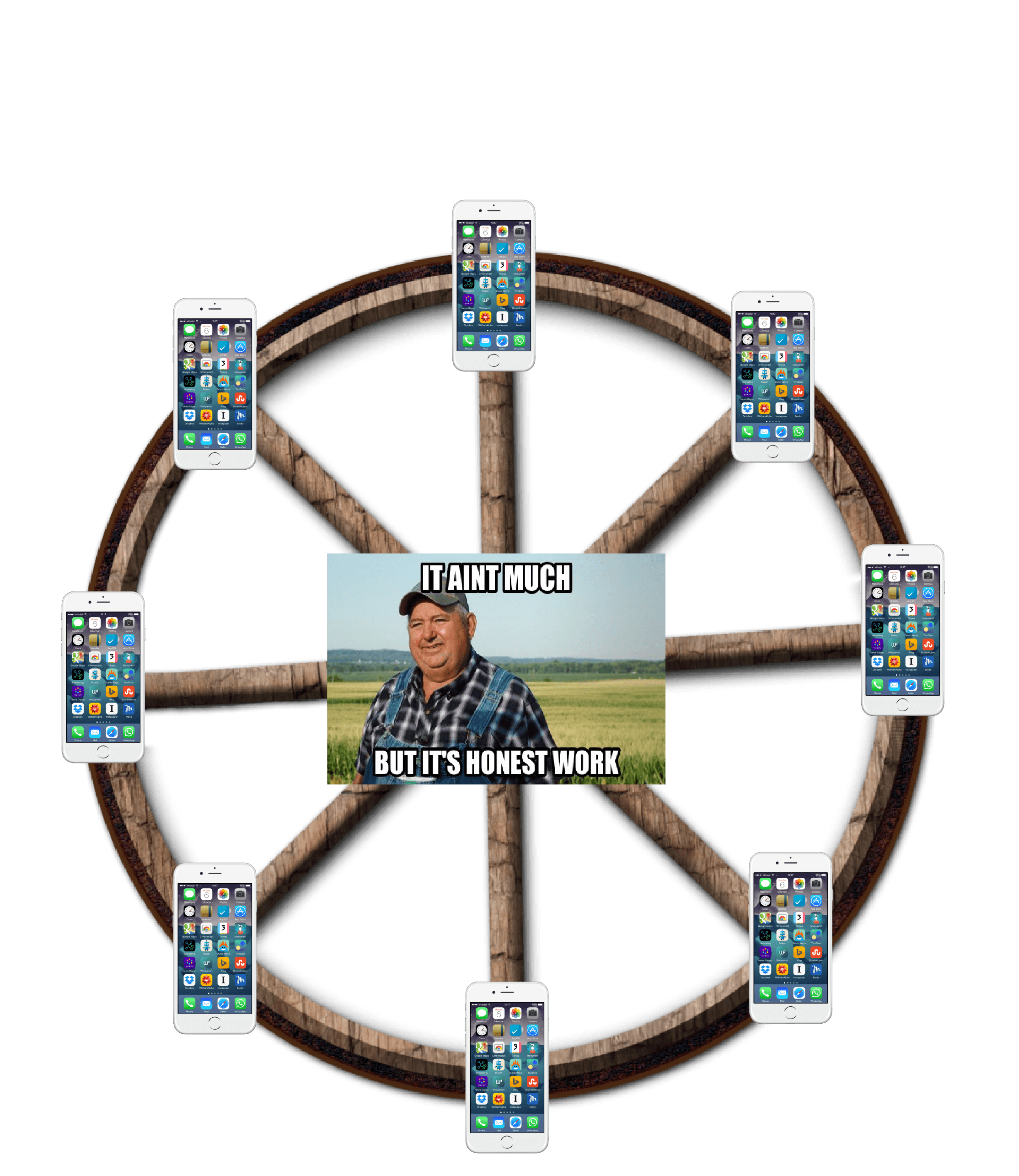If you are reading this its likely you or your customer are a farmer. But if thats not the case don't worry. You won't get lost in jargon land.
So lets take an example farmer.
They buy what they need from their business from a range of other businesses.
Feed, Seed, Fertilizer, Tools, Tractors, Service, etc.
In some of these cases pricing and competition is fairly transparent, in others purposeful obfuscation rules the land, and in some cases things are just mirky because shits hard.
Essentially there is a spectrum of transparency for the buyer.
Buying tools is closer to buying a TV and so the internet has mostly solved for the buyers ability to shop around, see prices, compare, and buy where they find the most value.
Buying services is a lot closer to getting a divorce or adding onto a house. It's unlikely you will, or would want to, have a cookie cutter solution for this and such the pricing is mirky because, factually, this shit is hard. The name of the transparency game here is providing things like vendor ratings, personal recommendations etc vs platformed price transparency.
Buying feed, seed, and fertilizer live in the land of purposeful obfuscation. This is where farmers experience "hub and spoke transparency."
For you to buy any of these inputs you likely go through the exercise of getting quotes from a range of providers. Some of them might even have an app or portal where you can see prices.
However there is not a place to compare all the feed, seed, or fertilizer based on performance metrics or whatever other values float your boat across sellers like with tools and tv's.
This is because sellers of these goods do as much as they can to not compete on price. They are wise to do so as they have seen the what Amazon has done to many industries and that is not how they like to compete. So purposeful obfuscation rules the day. But that doesn't mean things aren't changing.
The sheer cost of humans, the desires of a new generation of farmers, and the slow grind of an improving society is still bringing these businesses into the digital age.
Wether it be large platforms that provide their product offerings more transparently or traditional businesses adding a portal on top of their existing systems, farmers are getting better experiences.
Unfortunately even in the better medium term future, black swans excluded, farmers end up with a pocket full of portals.
Perhaps its time to get that third monitor in the farm office.
Hub and spoke transparency is what a future of portals brings to the farmer. A better future worth building, but still one that leaves them rubbernecking a range of "request quote" pages.
The farmer is the hub, the portals are the spokes.
Welcome to 1990's!
Practical thoughts
If you wanted to change this you would start with growing a business with a captive audience of farmers large enough to use them to push suppliers to "do business our way". The carrot of the total groups buying power is the necessary leverage. This functions akin to a virtual digital cooperative or union.
If portals go brrrrr and every business playing purposeful obfuscation adopts one over the next decade this create the environment, culture, and zeitgeist for an aggregator/marketplace/platform to exist. If a technology provider wins the portal game, you can think of them like Shopify, the leading ecommerce software provider. Shopify during covid launched "Shop". An app that helps you "find and support" local business that run Shopify. Essentially, anyone with a winning hand in the portal strategy as a technology provider puts them in a good position to become an aggregator in a different future.
This is mostly a commentary on mature markets. I think in foreign markets things might very well pan out differently. That might be better too. I went to Africa in 2016 and was blown away by M-Pesa. The only way to buy a beer at the bar with a dirt floor was by sending a text message. Essentially mobile payments in Africa completely leap frogged modern markets because it was cheaper than doing it the old way and they didn't have to break existing business models or cultural norms of commerce to make it happen.
